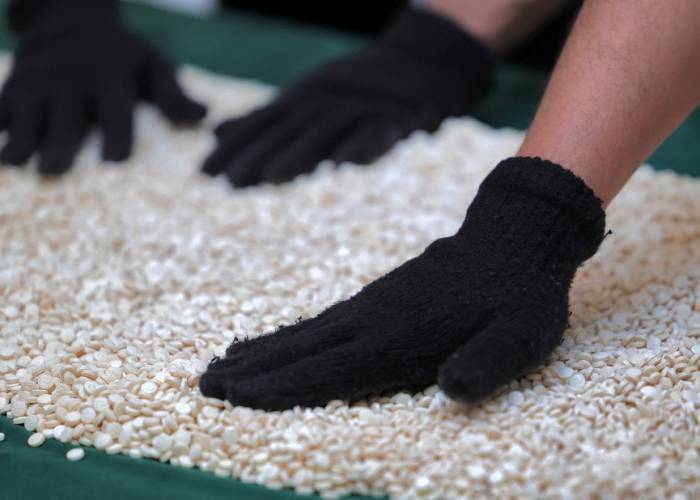An AFP report revealed the involvement of Julani militias and the national army in the production and trafficking of narcotic pills (Captagon) through widespread networks in cooperation with Assad’s militias. The report explained at the same time that this trade generates revenues for those militias hungry to look for sources of funding worth billions of dollars.
The agency said that the Captagon trade has become very profitable in various regions of Syria regardless of the forces controlling it, as it transcends the divisions between them. It is becoming today one of the most prominent Syrian exports, and its value exceeds all the value of the country’s legal exports, according to estimates based on statistics compiled by the agency.
It pointed out that Syria has become a key center for a network that extends to Lebanon, Iraq and Turkey to the Gulf countries through African and European countries, while Saudi Arabia is the first market for Captagon.
AFP interviewed more than 30 smugglers, current and former security officials in Syria and other countries, as well as activists and local officials familiar with the Captagon industry, most of whom asked not to be named, noting that commercial and tribal interest ties overlap between Captagon smuggling and trade lines.
Huge profits
One of the people, who works as an intermediary and has ties to several traders in the Lebanese Beqaa region, told the agency that the Captagon trade “has a light capital and large profits.” He explains that one shipment with a budget of ten million dollars covers raw materials and smuggling routes such as “railways” and “bribes”, and returns a profit of $180 million.
“If they lose the first ten million, the twelfth million, and even the thirteenth, once one shipment succeeds in passing, the merchant is a winner,” he explained.
Syrians Arrested in Germany for Smuggling Captagon to Saudi Arabia
“It’s one network, Syrian, Saudi, Lebanese, Iraqi, Jordanian,” the mediator said, noting that there is often a tribal link that brings regions and countries together.
The mediator and security sources in the region confirm that the most influential clan is the Bani Khalid, which is the largest and extends between Syria, Lebanon, Jordan, Iraq and Saudi Arabia, and is descended from various tribes.
The agency pointed out that the Assad regime, two groups affiliated with it, and the network of war merchants benefit tremendously from the Captagon trade. It pointed to the involvement of security and military militias affiliated with Assad in that trade, foremost among which is the militia of the Fourth Division, which belongs to Maher al-Assad, as well as the Hezbollah militia.
Militia Involvement in Northern Syria
Besides the spread of Captagon trade in southern Syria, specifically in Sweida and Daraa governorates as a result of deteriorating economic conditions, trade has made its way through the network of war merchants and beneficiaries from Assad’s controlled areas to the lines of contact and militia-controlled areas in northern Syria.
The agency quoted a former adviser in Assad’s government (whom it did not name) as saying that “Captagon brought together all parties to the conflict (…) The regime, the opposition, the Kurds and ISIS.”
The Captagon industry and smuggling also entered militia-controlled areas in northern Syria, quoting one smuggler as saying: “I work with people in Homs and Damascus who bring grain from the warehouses of the Fourth Division.” He added: “We distribute grain here or send it to Turkey in coordination with the factions (…) The Turkish market depends on us a lot. We are a gateway to them.”
The smuggler, he said, also sells grain to officials of the Julani militia, which controls about half of neighbouring Idleb governorate, where he relies on grain from regime-held or locally manufactured areas for his trade.
According to the smuggler, the first name in the Captagon trade in the region is the commander of Sultan Murad’s militia, Abu Walid al-Azza, “because he has strong ties with the Fourth Division since he was in Homs.” However, the militia denied any involvement in the manufacture and smuggling of Captagon.
This article was translated and edited by The Syrian Observer. The Syrian Observer has not verified the content of this story. Responsibility for the information and views set out in this article lies entirely with the author.


